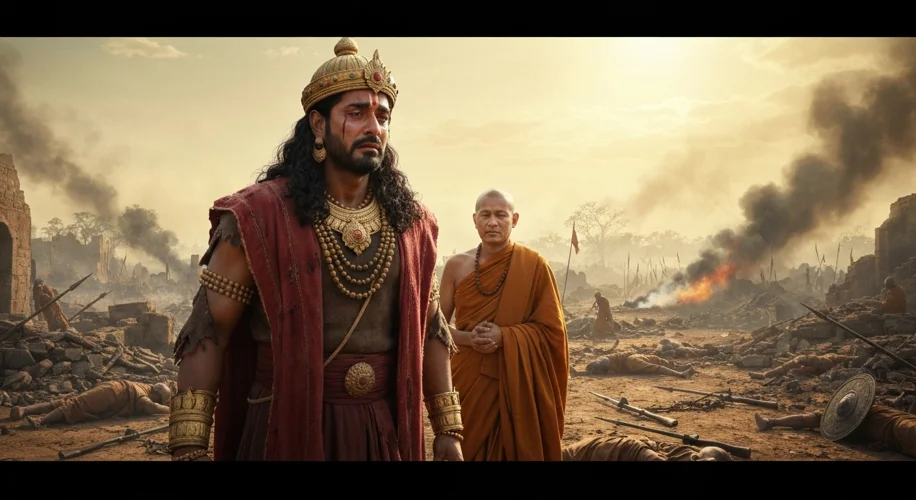Imagine a vast empire stretching across the Indian subcontinent, a land forged in the crucible of war. At its helm sat a warrior king, Ashoka Maurya, the third emperor of the mighty Mauryan Dynasty. His reign, beginning around 268 BCE, was initially marked by the ambition and ruthlessness befitting a conqueror. He inherited a powerful kingdom and a military machine, and he was determined to expand its reach.
The defining moment of Ashoka’s reign, and indeed his life, was the brutal conquest of Kalinga, a wealthy coastal kingdom. The scale of the bloodshed was horrific. Accounts tell of over 100,000 lives lost, with countless more injured and displaced. The aftermath of this single campaign left the land devastated and the emperor deeply shaken. It is said that Ashoka, surveying the carnage, was overwhelmed by a profound sense of remorse and a chilling realization of the true cost of his ambition.
This visceral encounter with death and suffering became a turning point. Ashoka, the fierce warrior, experienced a profound spiritual awakening. He converted to Buddhism, an ideology that championed peace, non-violence (ahimsa), and compassion. This wasn’t a mere personal conversion; it reshaped the very fabric of his empire.
Ashoka didn’t just embrace Buddhism; he actively promoted it. His vast empire, stretching from modern-day Afghanistan to Bangladesh, became a canvas for his new philosophy. He commissioned the famous Ashoka Pillars, imposing stone columns inscribed with his edicts. These weren’t pronouncements of war or conquest, but messages of dharma – righteousness, moral law, and social responsibility. He spoke of religious tolerance, respect for all living beings, and the importance of social welfare.
His edicts, found across the subcontinent, offer an unparalleled glimpse into his transformed worldview. They urged his subjects to practice kindness, to respect elders and teachers, and to treat servants and prisoners with humanity. He established hospitals for both humans and animals, dug wells, and planted shade trees along the roads, creating infrastructure that eased the lives of ordinary people. He even sent Buddhist missionaries to distant lands, including Sri Lanka, Southeast Asia, and the Hellenistic kingdoms of the Mediterranean, spreading the message of peace and tolerance far beyond his borders.
Ashoka’s transformation from a relentless conqueror to a benevolent ruler is a compelling narrative of personal change with monumental consequences. His commitment to peace and ethical governance left an indelible mark on the history of India and the spread of Buddhism. The principles he espoused – tolerance, compassion, and social welfare – laid the groundwork for a more humane society and influenced rulers and thinkers for centuries to come.
The legacy of Ashoka the Great is a powerful reminder that leadership can evolve, and that the most enduring empires are often built not on the strength of arms, but on the foundation of moral principles. His story, etched in stone and carried on the winds of history, continues to inspire us to consider the profound impact one individual can have in shaping the course of civilization.

